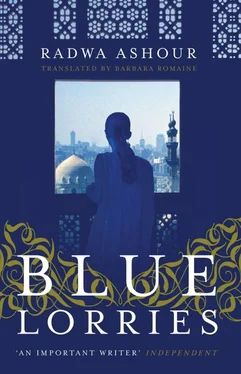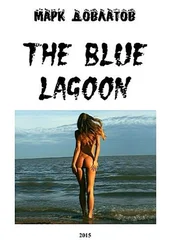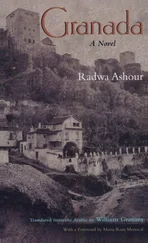At school I studied the lines from Imru al-Qays:
Night like sea waves has dropped its curtains
Upon me with a multitude of woes to try me.
So I said to it when, camel-like, it stretched its back,
Lowered its hindquarters and crouched under its own weight,
Oh long night, disperse,
Though daylight be no brighter.
But how was a girl in the first year of senior school to grasp the meaning behind these lines? How could she comprehend this complex imagery of alienation? A cavernous night of afflictions coming one upon the other like sea-waves, it surrounds you; you shoulder its burdens like a she-camel defying gravity, but in vain; you try to find release by looking toward morning, but give up the attempt; night or day, desert or sea, space open or closed, motion or stillness, present or future: no difference, no escape.
Many years later I understood, and when I did, I found myself making a connection between Imru al-Qays’s lines and those of his distant descendant, Fouad Haddad:
I don’t want dawn to come… oh people, I don’t want it.
Each time dawn comes, I… I, poor anguished soul
Wherever my father kissed me, there they beat me;
Wherever my mother kissed me, there they beat me,
Beatings like insults to your injured womb.
For what did you carry me in your womb, nourish me on your food?
For what did you call me by my name — and they call me
By a number written on the skullcap, the mattress, and the blanket?
For what, my mother, did we read,
For what did I go to school,
Learn the alphabet?
For what, the books, the indexes, the tests, the Eid gifts?
For what, my mother, did I start out human?
Abdel Latif has inherited your son to be one more of his slaves,
Abdel Latif Rushdie is his lord,
Abdel Latif Rushdie is a knight astride the government’s horse,
With an owl inscribed on his face:
Behind him goes catastrophe, before him a cudgel.
I heard these lines for the first time at university, and I memorised them, although it took years for me to learn their context. Take, for example, this line, which might not be the most eloquent of those selected: ‘Abdel Latif Rushdie is a knight astride the government’s horse.’ We need only infer that Abdel Latif Rushdie is one of the officers who tortured the detainees in order to understand this line. But its meaning is still incomplete, perhaps even deficient, falling far short of a context that infuses the picture with history, facts, agonies: insults and abuse, kickings, starvation and terror. Beatings on the head and face, beatings on the neck and back, beatings on the chest and stomach, the arms and legs, the feet. Beatings with canes, with truncheons, with palm-branches, with leather straps, with shoes. Blows delivered by the hands and kicks by the feet, lashes with whips, flayings. It was ‘Do as you’re told by the sergeant, you son of a bitch!’ ‘Say, “I’m a woman,” you son of a whore!’ and ‘Abdel Latif Rushdie is a knight astride the government’s horse,’ presiding over the action and carrying it out, torturing a line of men being transported to hard labour, their bodies emaciated, faces pale, clothing threadbare, hands ulcerated, feet cracked and swollen with suppurating wounds, descending into a trench to break up basalt under armed guard. ‘Abdel Latif Rushdie is a knight astride the government horse.’ He tortures Shuhdi Atiyya to the point of death — and he dies.
And Abdel Latif Rushdie, although alone in the poem, brings with him other officers, whose names, traits, words and actions the context supplies for us — the lords and masters of the prison: Major-general Ismail Hemmat, Major Hasan Mounir, Captain Mourgane Ishaq and Second Lieutenant Yunus Mar‘i, among others.
Take for example Major Fouad, who led the campaigns for torturing the Muslim Brothers in the Citadel and Abu Za‘bal prisons during the 1950s. He looks well settled-in behind his desk, in full uniform, where he directs operations. Abusive obscenities first, then punches and kicks, followed by blindfolding and suspending the prisoner naked, to deliver electric shocks to him and extinguish cigarettes on his body repeatedly, from every side.
Is this major in fact Major-general Fouad, who keeps appearing on the satellite channels with his silver hair and his elegant suit, speaking earnestly and without batting an eye, no tremor in his voice, no twitch in his hands or any part of his face, answering questions addressed to him by the host, who has introduced him as an expert on terrorism and sanctioned organisations?
I talk to Hazem a great deal about my desire to write a book that deals comprehensively with the prison experience. I tell him about each new book I acquire. (I was eager to get my hands on whatever books I could find that addressed this subject. There was a fairly good library available to me that housed biographies of the political prisoners at Mahariq Prison in the oases, the military prison; Citadel and Tora prisons, Abu Za‘bal, Istinaf and Qanatir in Cairo; Hadra Prison in Alexandria; and ‘Azab Prison in Fayoum. Later I added to it new books on similar experiences at Al-Khiam Detention Centre in southern Lebanon, at Israeli prisons, at Tazmamart in Morocco and Robben Island in South Africa.)
Hazem accuses me of being self-destructive, and says I’m not going to write a book, that I’m merely addicted to reading these accounts, which leave me depressed: ‘You’ll never write this book!’ he says. ‘Anyway, it’s an impossible task — how could you cover all these experiences in one book?’
Angry with him, I cut him off for a few weeks, and then we meet again for lunch or dinner. I’m hoping he won’t reopen the discussion. And at our reconciliation get-together he doesn’t broach the subject. But afterward he reverts as usual, and brings it up again, so we quarrel — or not, because I tell him about some of the paradoxes I intend to include in the book. He laughs when I tell him about Abdel Sadiq, the gaoler who, exhausted from the exertion of beating the detainees and showing signs of the onset of a heart attack, began shouting at them, ‘You sons of bitches, is there no mercy in your hearts?’ And Oukal, who confided to one of the prisoners, in something of an apologetic tone, that he was just the warden’s lackey, and only following orders: ‘When you get out of here, go into government and give me Abdel Latif Rushdie, and I’ll beat him … give me Gamal Abdel Nasser himself, and I’ll beat him, too — I do the government’s bidding. I tell you it’s happened before your time, and I tell you it’ll happen again afterward.’
Or the incident when the prisoners were shaved — their hair, eyebrows and pubes. Hazem says, ‘I’ve heard that one before — everyone’s written about it.’ ‘But I can tell you more. The prisoner who’s just been shaved goes back to his ward, more naked than the day his mother gave birth to him, and is surprised when his cellmate looks him up and down and says, “Who are you?” ’
I didn’t talk to Hazem, or anyone else for that matter, about the mouse incident that was cited in the testimonial of an inmate at Tadmur Prison in Syria. With his own eyes he witnessed another inmate being forced to swallow a dead mouse. I couldn’t bear to recall that tale, whether in imagination or in conversation, though it haunted me for weeks, even in my sleep, when it came back to me in nightmares. But I told Hazem about the Spanish woman who wrote about her prison experience during the reign of Franco. ‘This woman formed an extraordinary friendship in solitary confinement. She got to be friends with someone whose movements she followed in the cell, and who was her constant companion, observing her and talking to her all the time, telling her about herself and her husband and her three children, who’d been farmed out to three different families, because her husband was also a prisoner.’
Читать дальше











